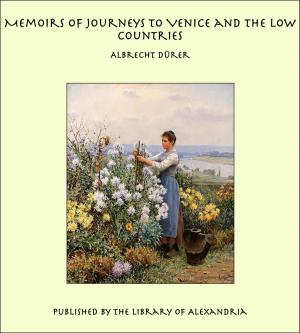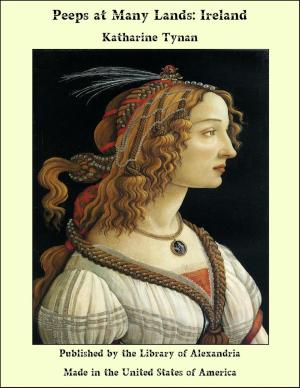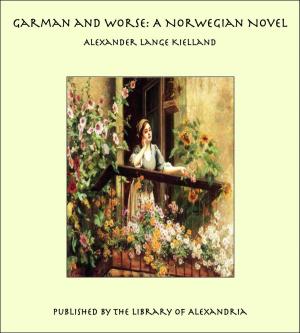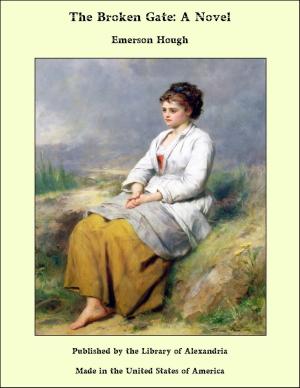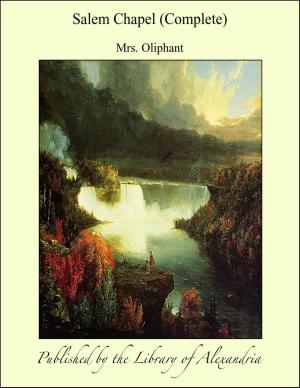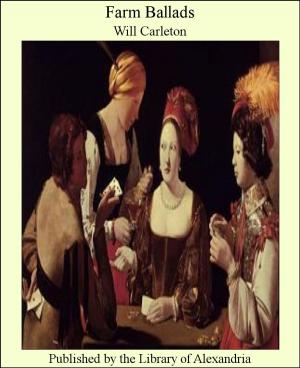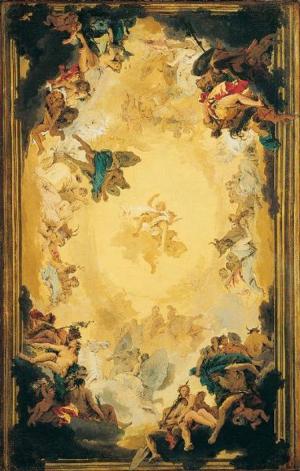| Author: | James Matthew Barrie | ISBN: | 9781465554437 |
| Publisher: | Library of Alexandria | Publication: | March 8, 2015 |
| Imprint: | Language: | English |
| Author: | James Matthew Barrie |
| ISBN: | 9781465554437 |
| Publisher: | Library of Alexandria |
| Publication: | March 8, 2015 |
| Imprint: | |
| Language: | English |
THE SCHOOLHOUSE Early this morning I opened a window in my schoolhouse in the glen of Quharity, awakened by the shivering of a starving sparrow against the frosted glass. As the snowy sash creaked in my hand, he made off to the water-spout that suspends its "tangles" of ice over a gaping tank, and, rebounding from that, with a quiver of his little black breast, bobbed through the network of wire and joined a few of his fellows in a forlorn hop round the henhouse in search of food. Two days ago my hilarious bantam-cock, saucy to the last, my cheeriest companion, was found frozen in his own water-trough, the corn-saucer in three pieces by his side. Since then I have taken the hens into the house. At meal-times they litter the hearth with each other's feathers; but for the most part they give little trouble, roosting on the rafters of the low-roofed kitchen among staves and fishing-rods. another white blanket has been spread upon the glen since I looked out last night; for over the same wilderness of snow that has met my gaze for a week, I see the steading of Waster Lunny sunk deeper into the waste. The schoolhouse, I suppose, serves similarly as a snowmark for the people at the farm. Unless that is Waster Lunny's grieve foddering the cattle in the snow, not a living thing is visible. The ghostlike hills that pen in the glen have ceased to echo to the sharp crack of the sportsman's gun (so clear in the frosty air as to be a warning to every rabbit and partridge in the valley); and only giant Catlaw shows here and there a black ridge, rearing its head at the entrance to the glen and struggling ineffectually to cast off his shroud. Most wintry sign of all, I think as I close the window hastily, is the open farm-stile, its poles lying embedded in the snow where they were last flung by Waster Lunny's herd. Through the still air comes from a distance a vibration as of a tuning-fork: a robin, perhaps, alighting on the wire of a broken fence. In the warm kitchen, where I dawdle over my breakfast, the widowed bantam-hen has perched on the back of my drowsy cat. It is needless to go through the form of opening the school to-day; for, with the exception of Waster Lunny's girl, I have had no scholars for nine days. Yesterday she announced that there would be no more schooling till it was fresh, "as she wasna comin';" and indeed, though the smoke from the farm chimneys is a pretty prospect for a snowed-up schoolmaster, the trudge between the two houses must be weary work for a bairn. As for the other children, who have to come from all parts of the hills and glen, I may not see them for weeks. Last year the school was practically deserted for a month. A pleasant outlook, with the March examinations staring me in the face, and an inspector fresh from Oxford. I wonder what he would say if he saw me to-day digging myself out of the schoolhouse with the spade I now keep for the purpose in my bedroom. The kail grows brittle from the snow in my dank and cheerless garden. A crust of bread gathers timid pheasants round me. The robins, I see, have made the coalhouse their home. Waster Lunny's dog never barks without rousing my sluggish cat to a joyful response. It is Dutch courage with the birds and beasts of the glen, hard driven for food; but I look attentively for them in these long forenoons, and they have begun to regard me as one of themselves. My breath freezes, despite my pipe, as I peer from the door; and with a fortnight-old newspaper I retire to the ingle-nook. The friendliest thing I have seen to-day is the well-smoked ham suspended from my kitchen rafters. It was a gift from the farm of Tullin, with a load of peats, the day before the snow began to fall. I doubt if I have seen a cart since
THE SCHOOLHOUSE Early this morning I opened a window in my schoolhouse in the glen of Quharity, awakened by the shivering of a starving sparrow against the frosted glass. As the snowy sash creaked in my hand, he made off to the water-spout that suspends its "tangles" of ice over a gaping tank, and, rebounding from that, with a quiver of his little black breast, bobbed through the network of wire and joined a few of his fellows in a forlorn hop round the henhouse in search of food. Two days ago my hilarious bantam-cock, saucy to the last, my cheeriest companion, was found frozen in his own water-trough, the corn-saucer in three pieces by his side. Since then I have taken the hens into the house. At meal-times they litter the hearth with each other's feathers; but for the most part they give little trouble, roosting on the rafters of the low-roofed kitchen among staves and fishing-rods. another white blanket has been spread upon the glen since I looked out last night; for over the same wilderness of snow that has met my gaze for a week, I see the steading of Waster Lunny sunk deeper into the waste. The schoolhouse, I suppose, serves similarly as a snowmark for the people at the farm. Unless that is Waster Lunny's grieve foddering the cattle in the snow, not a living thing is visible. The ghostlike hills that pen in the glen have ceased to echo to the sharp crack of the sportsman's gun (so clear in the frosty air as to be a warning to every rabbit and partridge in the valley); and only giant Catlaw shows here and there a black ridge, rearing its head at the entrance to the glen and struggling ineffectually to cast off his shroud. Most wintry sign of all, I think as I close the window hastily, is the open farm-stile, its poles lying embedded in the snow where they were last flung by Waster Lunny's herd. Through the still air comes from a distance a vibration as of a tuning-fork: a robin, perhaps, alighting on the wire of a broken fence. In the warm kitchen, where I dawdle over my breakfast, the widowed bantam-hen has perched on the back of my drowsy cat. It is needless to go through the form of opening the school to-day; for, with the exception of Waster Lunny's girl, I have had no scholars for nine days. Yesterday she announced that there would be no more schooling till it was fresh, "as she wasna comin';" and indeed, though the smoke from the farm chimneys is a pretty prospect for a snowed-up schoolmaster, the trudge between the two houses must be weary work for a bairn. As for the other children, who have to come from all parts of the hills and glen, I may not see them for weeks. Last year the school was practically deserted for a month. A pleasant outlook, with the March examinations staring me in the face, and an inspector fresh from Oxford. I wonder what he would say if he saw me to-day digging myself out of the schoolhouse with the spade I now keep for the purpose in my bedroom. The kail grows brittle from the snow in my dank and cheerless garden. A crust of bread gathers timid pheasants round me. The robins, I see, have made the coalhouse their home. Waster Lunny's dog never barks without rousing my sluggish cat to a joyful response. It is Dutch courage with the birds and beasts of the glen, hard driven for food; but I look attentively for them in these long forenoons, and they have begun to regard me as one of themselves. My breath freezes, despite my pipe, as I peer from the door; and with a fortnight-old newspaper I retire to the ingle-nook. The friendliest thing I have seen to-day is the well-smoked ham suspended from my kitchen rafters. It was a gift from the farm of Tullin, with a load of peats, the day before the snow began to fall. I doubt if I have seen a cart since

